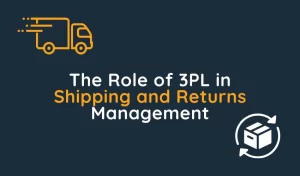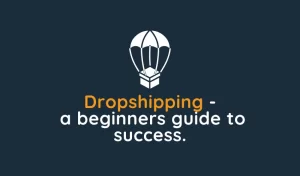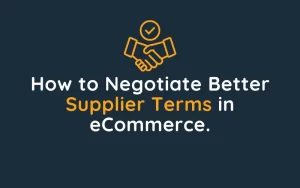As a small business owner, you know that effective shipping is more than just getting products from point A to point B. It’s about balancing cost, speed, and reliability to meet your customers’ expectations and maintain your margins. But with so many factors to juggle, how can you optimise your shipping strategy without getting overwhelmed? Here are some practical strategies to streamline your shipping process, followed by insights on when it might make sense to bring in a Third-Party Logistics (3PL) provider like PackPro to help you take things to the next level.
Optimise Your Packaging
It might seem like a small detail, but choosing the right packaging can make a big difference in your shipping costs. Smaller, lighter packages are often less expensive to ship. Therefore, by using packaging that fits your products snugly, you can avoid paying for unnecessary bulk. Consider investing in packaging materials that protect your products while minimising weight.
Negotiate with Multiple Carriers
Don’t settle for the first shipping rate you come across. Just like with any business expense, shopping around can pay off. By comparing rates from different shipping carriers and negotiating based on your shipping volume, you can secure better deals that help you keep costs down. Even as a small business, you have leverage—especially if you’re consistent in your shipping needs.
Offer Multiple Shipping Options
Giving your customers the choice between different shipping speeds and costs can improve their shopping experience. Some customers might prioritise speed, while others might prefer a cost-effective option. Offering free shipping above a certain purchase amount can also encourage larger orders, which can offset your shipping costs.
Interested in learning about the shopping habits of online shoppers? Read our ‘online shopping statistics’ blog to find out what shoppers think about fast shipping and other insightful knowledge in the eCommerce world.
Implement Efficient Inventory Management
Centralising your inventory can reduce the distance products need to travel, cutting down on shipping times and costs. Using inventory management software can help you keep track of stock levels, manage orders more effectively, and forecast demand to prevent stockouts or overstocking—both of which can hurt your bottom line.
Implement Efficient Inventory Management
If your customers are spread out across the country or even globally, using regional warehouses can be a game-changer. By storing inventory closer to your key markets, you can reduce shipping times and costs significantly. This strategy is especially useful if you’re dealing with bulky or heavy items that are expensive to ship over long distances.
When Should You Consider a 3PL In Your Small Business?
While these strategies optimise in-house shipping, managing logistics yourself may eventually become too complex or time-consuming.
Firstly, what is a 3PL provider? A Third-Party Logistics (3PL) provider is a company that offers outsourced logistics services. This includes everything from warehousing and order fulfilment to shipping and returns management. Partnering with a UK 3PL provider can help small businesses scale their operations and focus more on core business activities.
So, it may be time to consider a 3PL when:
1. Your Business is Growing Quickly: Struggling with increased orders or market expansion? A 3PL can help you scale operations without significant upfront investment.
2. Shipping Costs are Eating Into Your Profits: If you’ve done everything you can to optimise shipping, but costs are still high, a 3PL might be able to secure better rates and provide more cost-effective shipping solutions.
3. Your Logistics Needs are Getting Complicated: As your business grows, so do your logistics challenges. Whether it’s managing returns, dealing with multiple carriers, or navigating international shipping regulations, a 3PL can take these tasks off your plate so you can focus on your core business.
4. You Have Seasonal Peaks: If your business experiences significant demand fluctuations throughout the year, a 3PL can provide the flexibility you need to handle these peaks. This solution eliminates the overhead of committing to year-round staff and warehousing.
Benefits of Using a 3PL for Small Businesses
1. Cost Savings
– Reduced Shipping Costs: 3PLs often have established relationships with carriers and can negotiate better rates, lowering your overall shipping costs.
– Lower Labor Costs: Hiring and managing staff for warehousing and shipping can be expensive. A 3PL takes care of staffing, training, and managing the logistics workforce.
2. Scalability
– Flexible Solutions: A 3PL can easily scale its services up or down based on your business needs. This flexibility helps you manage seasonal demand fluctuations without requiring permanent investments.
– Access to Advanced Technology: Many 3PLs use sophisticated inventory management and tracking systems that might be too costly for a small business to implement on its own.
3. Focus on Core Business
– More Time for Growth: Outsourcing logistics allows you to focus on product development, marketing, and customer service, rather than getting bogged down by shipping and fulfilment details.
– Expertise and Efficiency: 3PLs specialise in logistics, meaning they can often handle these tasks more efficiently than a small business could on its own.
Ready to Take the Next Step?
If you’re looking to reduce costs, improve shipping efficiency, or scale your business operations, PackPro has the experience and solutions to help you achieve your goals. Contact us today to learn more about how our 3PL services can transform your logistics and drive your business forward. Let us handle the complexities of shipping, so you can focus on what matters most—delivering for your customers and growing your business.



